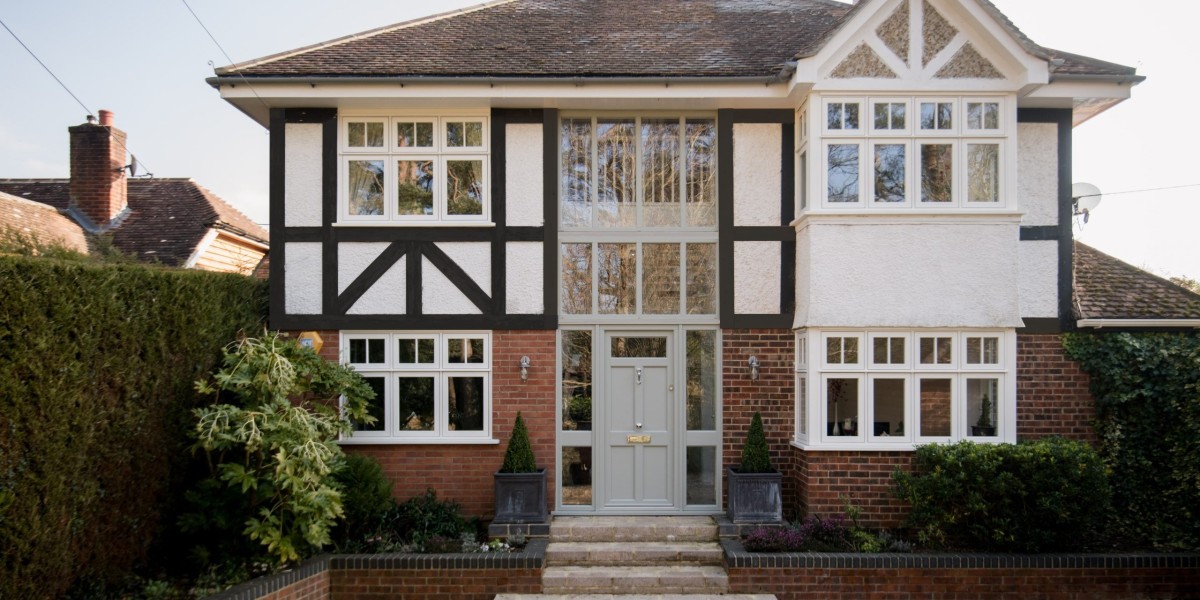
1. Real Estate and Other Housing
2. Homeownership
3. Understanding Ground Rent in Maryland
Understanding Ground Rent in Maryland

Topics on this page:
What is Ground Rent?
How do I know if a residential or commercial property is subject to ground lease?
What if I can not call the ground lease holder?
What happens if I fail to pay ground rent?
What does it mean to redeem ground lease?
Just how much does it cost to redeem ground lease?
What is Ground Rent?
In specific circumstances, a property owner owns your house they live in however not the land the house sits on. Another person (the ground lease holder) owns the land and rents the land to the house owner. Under Maryland law, a ground lease holder is entitled to lease payments from the owner of the home that lies on their land. These payments are known as ground rent.
Ground lease is most common in the Greater-Baltimore realty market but exists throughout Maryland. Ground rent payments usually range from $50 to $150 per year and are normally paid semi-annually (twice a year). The language of the ground lease will set out the terms of payment. A ground rent lease is generally for 99 years and renews forever.
Ground lease deals are various from regular proprietor and renter relationships. This is because the ground lease owner has no right to take back any residential or commercial property unless the renter does not pay rent. That is, the ground lease holder does not have a reversionary right to the residential or commercial property or any structures built on it unless the property owner stops working to make the needed payments. If the leaseholder is existing with their ground rent payments, the residential or commercial property stays under their control.
The homeowner is accountable for upkeep of the land and any improvements on the land, including enhancements made to the home itself (Kolker v. Biggs, 203 Md. 137, 141 (1953 )). The homeowner has the authority to alter, renovate, and rebuild the residential or commercial property as they want, however they need to ensure that their actions maintain the worth of the land (Crowe v. Wilson, 65 Md. 479, 484 (1886 )). Additionally, it is the sole responsibility of the homeowner to obtain and make payment on any utilities that service the residential or commercial property.
How do I understand if a residential or commercial property undergoes ground rent?
When a residential or commercial property is noted for sale, the residential or commercial property description need to list whether the residential or commercial property has any suitable ground rent. If the residential or commercial property is listed as "Fee Simple," the listing includes both the house and the residential or commercial property (ground) in the purchase price - there is no ground rent. If there is an indicator of "Ground Rent" in a listing, it shows that a cost needs to be paid to the owner of the ground on which the residential or commercial property sits.
If you own a home, or are aiming to acquire a home, you can identify if a residential or commercial property goes through payment of a ground lease by looking at the deed. Ground rent deeds are filed in the land records of the Circuit Court in the county where the residential or commercial property is located. In lots of cases, a deed for several ground leas owned by one owner will be written. Land records can be found on the website mdlandrec.net.
Maryland law requires that ground lease holders sign up ground lease leases on the Maryland State Department of Assessments and Taxation's (SDAT) Ground Rent Registry. If you are not sure that your residential or commercial property has a ground rent, you can view the registration status through SDAT's Real Residential or commercial property Search. (When seeing the residential or commercial property record, click "View Ground Rent Redemption")
If a ground lease is signed up for your residential or commercial property, you are obligated to pay the ground lease to the ground lease holder. You must contact the owner listed on the registration kind regarding payment of the ground rent or to inform the owner that you wish to redeem your ground rent. It is also your obligation to alert the ground lease holder if you change your address or transfer ownership of the residential or commercial property. If you are a ground lease renter (property owner) or leaseholder and you have a concern, it is an excellent concept to get in touch with a lawyer.
Read the law: Md. Code, Real Residential Or Commercial Property § 8-703; § 8-704; § 8-705.
What if the residential or commercial property does not appear in the Ground Rent Registry?
Under Maryland law, a ground lease is not signed up until it is posted in the online pc registry of ground leases. Amendments must also be signed up. If a ground lease is not registered, the ground lease holder might not:
1. Collect or try to gather any ground lease payments, late fees, interest, collection costs, or other expenditure associated to the ground lease;
2. Bring a civil action against the leasehold occupant to impose any rights the ground lease holder may have under the ground lease; or
3. Bring an action against the leasehold occupant under the ground lease laws.
If a ground lease is not signed up, and the holder of the lease collects, or attempts to collect, ground lease payments, late fees, interest, collection expenses or other expenses, the leasehold renter might submit an affidavit to the State Department of Assessments and Taxation indicating that the lease holder remains in offense of the law.
Once an affidavit has been received, the Department will alert the leaseholder of the supposed violation, and the leaseholder needs to submit evidence to reveal that their collection was not in violation of the law. If the leaseholder fails to send evidence within 45 days of being notified, the Department might void the ground lease registration.
Either party may appeal the last choice of the Department to the Circuit Court. Appeals must be filed within 45 days of notice of the final decision.
NOTE: If you find that there is no ground lease registered on your residential or commercial property, there is nothing you must do. If you are called by a company declaring that you owe them ground rent payments, it could be a rip-off, or the ground lease holder is attempting to unlawfully gather payments that they are not entitled to.
Read the law: Md. Code, Real Residential Or Commercial Property § 8-707.
What if I can not get ahold of the ground lease holder?
If you acquire a residential or commercial property that is subject to ground lease and are not able to get in touch with the ground lease holder, your mortgage company may want to set aside ground lease charges in escrow in case a ground lease holder appears and requires payment of rent. The optimum amount of back ground rent that can be gathered is restricted to three years. This means, if you have actually lived in home for 10 years, and unexpectedly a ground lease holder appears and demands payment, they can just collect 3 years of back ground rent and after that ask you to pay the yearly cost moving forward.
Read the law: Md. Code, Real Residential Or Commercial Property § 8-806.
What happens if I stop working to pay ground rent?
If you stop working to pay ground lease on time, the ground lease holder can file a lien against the home on their land for the ground rent owed. The ground lease holder may foreclose on the lien, similar to a bank can when you fail to pay your mortgage. If the ground lease holder files an action in court to collect the past due ground lease, you might be required to pay the ground lease holder for costs and costs associated with the collection of the past due ground lease.
If you fail to pay any back ground rent, the ground lease holder might also submit an action in court to acquire the residential or commercial property. If they do so, you may be accountable for additional charges and expenses and ultimately in your loss of the residential or commercial property. Prior to submitting an action for possession, the ground lease holder should send 2 notices to you through superior and licensed mail.
NOTE: Under Maryland law, a ground lease holder might not require more than 3 years of overdue ground lease, and there are limitations on just how much a ground lease holder might be reimbursed for fees and costs. Additionally, you would keep any equity you have in the home rather than forfeiting it to the ground lease holder.
Read the Law: Md. Code, Real Residential Or Commercial Property § 8-402.2; § 8-806; § 8-807.
What does it indicate to redeem ground lease?
If you do not own the ground your home is on, you may be able to buy it. To redeem ground rent is to buy the land (or ground) your home sits on from the ground lease holder. Whether ground rent is redeemable or irredeemable depends on when the ground lease deed was produced. A ground rent developed after April 8, 1884 is redeemable and the owner should offer you the ground lease if you want to purchase it. If you redeem the ground rent you would have outright ownership of the residential or commercial property in fee simple.
The owner of a ground rent created after April 8, 1884 must offer you the ground rent at a quantity repaired by Maryland law if you wish to buy it. If the ground lease was developed as irredeemable in the terms of the lease, the lease holder must have submitted a notice of objective to maintain irredeemability in the land records by December 31, 2010. If a notification was submitted, irredeemability continues through the existing calendar year unless another 10 year notice is submitted. If the lease holder did not file notification prior to December 31, 2010, or if they stop working to submit additional 10 year notifications, the ground lease ends up being redeemable.
Ground rent owners need to provide house owners with all the info necessary for the homeowner to purchase the ground lease. The ground lease holder must consist of a notice of your right to buy the ground lease with each, and every, ground rent costs. Additionally, homebuyers must be notified that they can redeem their ground rent as part of the initial financing or refinancing of their residential or commercial property.
If you wish to redeem the ground lease, get in touch with the ground lease holder. If the identity of the ground lease holder is unknown, the State Department of Assessments and Taxation supplies a procedure to redeem the ground lease when there has actually been no communication from the property owner for 3 years.
Read the law: Md
. Code, Real Residential Or Commercial Property § 8-805.
How much does it cost to redeem ground lease?
The State of Maryland currently manages the purchase costs for ground rents. The law represent both the leasehold worth of the residential or commercial property in addition to the lessee's annual incomes to avoid the leaseholder from creating excessive monetary barriers to redeeming one's ground lease.
A purchase cost is determined by taking the yearly ground lease fee and dividing it by a capitalization rate. The capitalization rate is based upon the year the lease was created:
- July 2, 1982 - Present - 12%.
- April 6, 1888 - July 1, 1982 - 6%.
- April 8, 1884 - April 5, 1988 - 4%.
- Prior to April 9, 1884 - Negotiable and potentially non-redeemable.
For example, if the ground rent is $100 and the lease started in 1945, the estimation is $100 divided by.06. Thus, the expense to buy your ground lease would be $1,666.67. There will also be legal costs and taxes associated with purchasing ground rent. The purchase of ground lease is a personal monetary transaction, and it is advised that an attorney or title company be included to assist with the research study, documentation, and needed filings.
If you can not manage to buy your ground lease the Maryland Department of Housing and Community Development's Ground Rent Redemption Loan Program offers special loan funding available for income-eligible property owners.
Read the Law: Md. Code, Real Residential Or Commercial Property § 8-804
What if I acquire a ground lease residential or commercial property?

Ground rents might be bought, offered, and passed to next of kin through wills, like a home or a household heirloom. The leasehold interest in the residential or commercial property is considered personalty, and is governed by the law that directs the administration of individual estate (Myers v. Silljacks, 58 Md. 319, 330 (1882 )). Each time the ground leasehold interest is passed to somebody else, the administrative jobs increase in the type of documentation, and in some cases through assessments with lawyers or through court looks. For this factor, ground rent leases often end up being more challenging than advantageous for the brand-new leaseholders.
When the leasehold interests alter hands, the brand-new leaseholders occasionally may not seek out the lessees for payment, and when no needs for payment arrive in the mail the house owners more than happy to require. However, Maryland law prior to 2007 put the legal burden on the lessees to discover their ground leaseholders and make payments.



